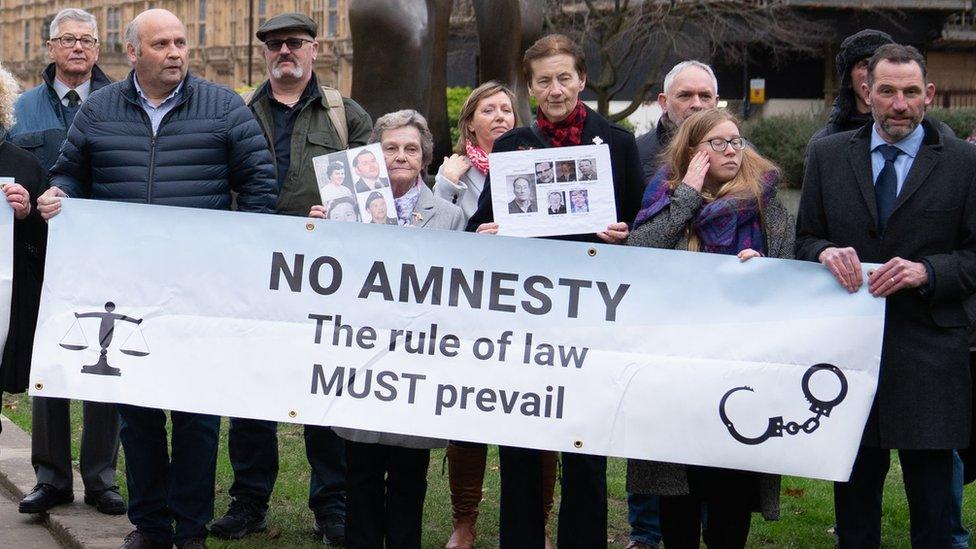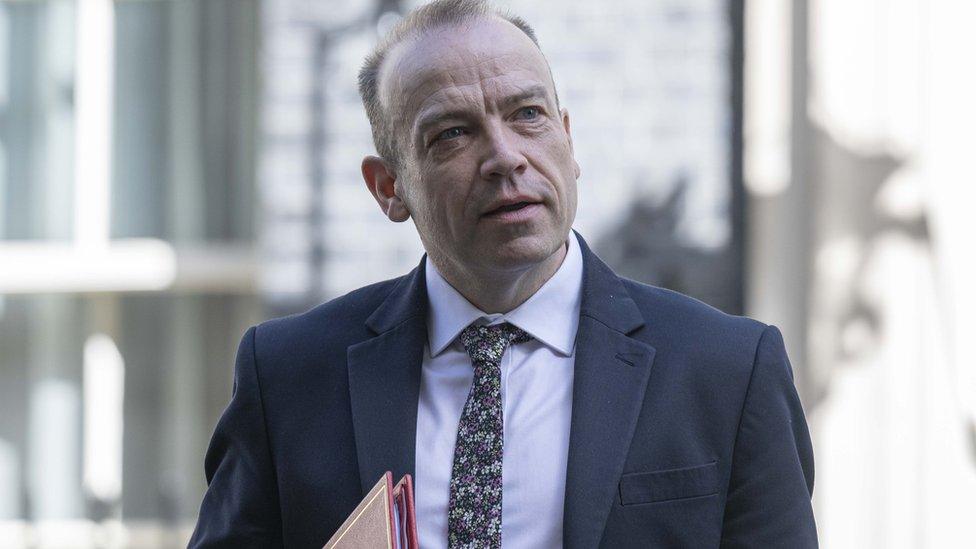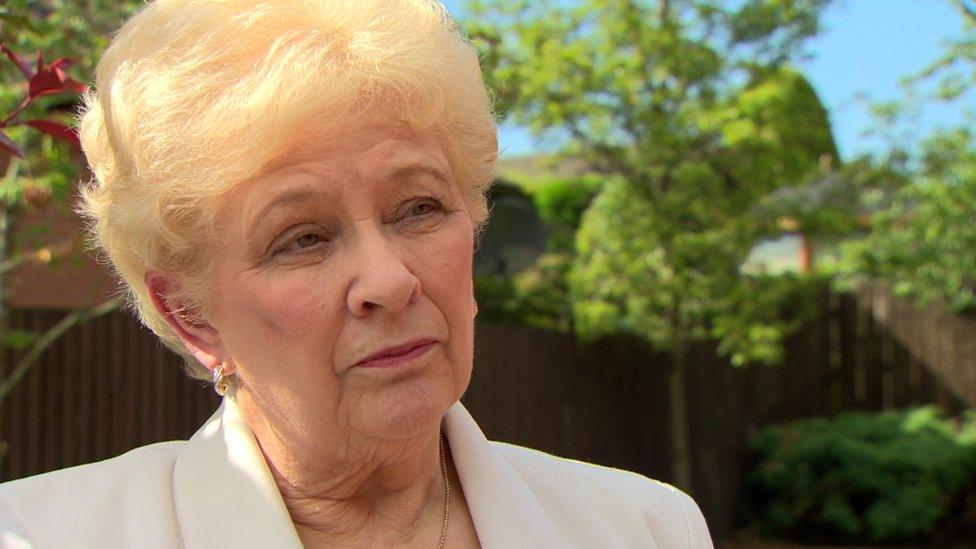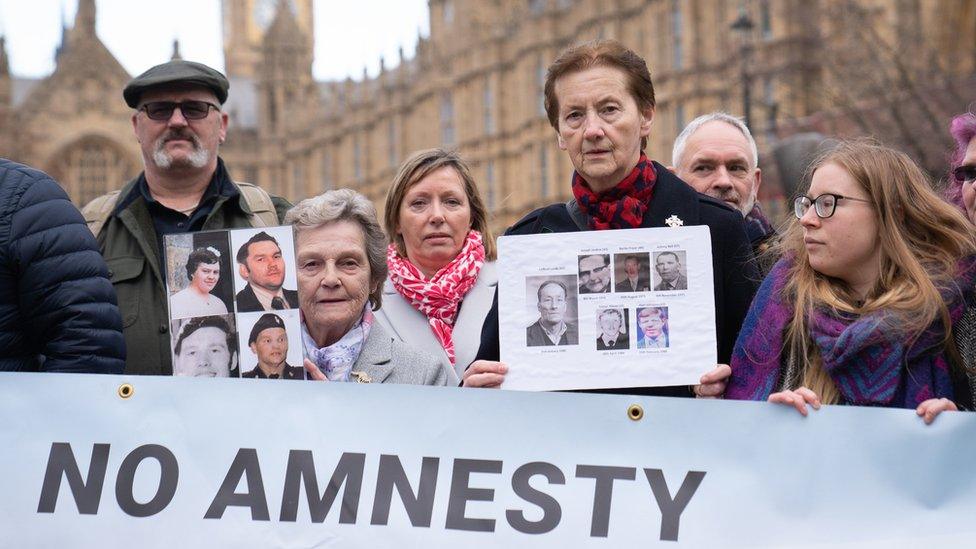Troubles legacy bill: UK government publishes new amendments
- Published

Victims of the Troubles have held several protests against the proposed law, including this one in January
The government has published a series of new amendments to its controversial legacy bill, ahead of its likely passage at Westminster.
It will introduce an amnesty scheme, stop future inquests into Troubles-era killings and prohibit new civil cases.
One of the amendments would delay changes for another year to "ensure a smooth transition" to new arrangements.
Northern Ireland Secretary Chris Heaton-Harris said the government was "absolutely committed" to the bill.
Reacting to the amendments, one victims' group, Relatives for Justice, said they "only make the situation worse".
The bill is opposed by all Northern Ireland political parties, as well as groups representing bereaved families and victims of the Troubles.
The legislation will establish a new body, the Independent Commission for Reconciliation and Information Recovery (ICRIR), which would take over legacy cases.
In return for co-operation, it can grant suspects immunity from prosecution.
In a statement, the Northern Ireland Office (NIO) said ongoing police investigations, inquests, the publication of reports and consideration of prosecution decisions will continue until May next year, to allow time for the ICRIR to become fully operational.
Any inquest which has not reached point of verdict or findings would be ended.
'Particularly cruel'
Sinn Féin assembly member Gerry Kelly said: "The proposed new timeframe for concluding inquests will make it more difficult for families to have this most basic investigation into the killings of their loved ones.
"The new amendment states that conflict-related inquests must conclude by 1 May next year.
"This effectively closes the door in the faces of families looking to make progress in a large number of inquests.
"This amendment is particularly cruel as expectations had been raised among families that once inquests had been opened that they would be concluded."

Chris Heaton-Harris said the changes address "a number of key concerns raised by interested parties"
Another amendment states any investigation run by the ICRIR must comply with obligations under the Human Rights Act 1998.
Also, the ICRIR would be "under a new duty to offer victims and their families the opportunity to submit personal impact statements".
Mr Heaton-Harris said: "The government has consistently stated that it would continue constructive dialogue in order to alleviate concerns and strengthen the bill.
"That is why we have published a number of significant amendments that directly address a number of key concerns raised by interested parties," he continued.
"This includes amendments on the conduct of reviews, compliance with Convention Rights, the independence of the commission, conditional immunity, and ongoing legal processes."
The bill is due to go through its final stages in the House of Lords later this month.
'Speak with one voice'
Prior to the NIO announcement, the Irish government repeated its concerns about the bill.
The Irish Minister for Foreign Affairs Micheál Martin said if it was enacted it "would undermine rather than assist reconciliation".
Victims' campaigner Raymond McCord said the amendments were disgraceful and disgusting.
He called for Stormont politicians "to speak with one voice" and accused the Conservatives of "whitewashing the murders of the Troubles" with the bill.
Grainne Teggart, of Amnesty International UK, said: "The government is treating troubles victims with contempt - these amendments do nothing to address the fundamental flaws with the bill.
"No-one is fooled by these changes and the government is still clearly intent on denying victims their basic rights and pressing ahead with a bill only it wants."
Related topics
- Published14 May 2023

- Published31 January 2023

- Published3 January 2023
